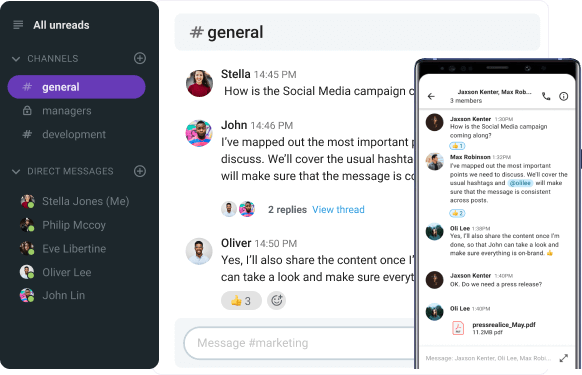As more organizations transition to hybrid and remote work models, it’s becoming increasingly clear that not everyone is capable of easily transitioning to the remote work lifestyle.
But what if, instead of thinking of remote work as something some people are just naturally bad at, we think of it as a skill anyone can hone?
In fact, what if the people struggling to learn remote work skills are just going about it the wrong way?
Having to rely on overly complex remote collaboration tools can sabotage any effort you put toward becoming a better remote worker.
So, before we talk about the essential skills for remote work, let’s take a moment to consider how choosing the right tools can be the best thing you can do to set yourself up for professional success.

How choosing the right tools can help you develop your remote work skills
If you want to know how to improve the productivity of your remote team, start by taking a look at the remote collaboration tools you’re using.
For example, using the wrong communication tool can affect your focus and hinder your professional success by:
- Not giving you the unlimited message history your team needs,
- Confusing you with an overly complicated and cluttered interface, and
- Overwhelming you with unnecessary notifications.
On the other hand, finding a simple collaboration tool that can support you and your team can all but eliminate those struggles, allowing you to focus on honing essential skills for remote work.
In other words, the tools you use at work can act as skill amplifiers, allowing you to practice and perfect your remote work skills at a faster rate.
So, if your goal is to develop those skills and encourage your team members to do the same — choosing the right tools will be half the battle.
8 Key remote skills (and how to develop them while working)
If you’re already a remote worker or the leader of a remote team, you probably don’t have time to set aside for learning essential skills for remote work outside of work hours.
Luckily, with the help of the right remote collaboration tools, you’ll be able to hone those skills while you work!
Going forward, we’ll talk about the 8 remote work skills you should focus on:
- Proactive asynchronous communication,
- Time management,
- Collaboration and knowledge sharing,
- Digital literacy,
- Flexibility and problem solving,
- Personal branding and networking,
- Work-life balance, and
- People management.
With that being said, let’s get into it!
Stay in touch with your remote team with Pumble
Skill #1: Proactive asynchronous communication
As a remote worker, your greatest challenge will be finding ways to improve your communication clarity.
As Yulia Borysenko, the Staff Director at a company that specializes in remote staffing solutions, told us, both self-management and proactive communication are vital pieces of the remote work puzzle:

“Technical skills may get someone hired, but it’s the ability to stay focused without direct supervision and to communicate with clarity and consistency that determines long-term success.”
So, how can you hone your communication skills without engaging in in-person conversations?
Well, if you want to work on your asynchronous communication skills, you could start by perfecting your work messaging skills.
Using a simple employee communication app like Pumble by CAKE.com can help you practice written communication by letting you:
- Post updates on various projects in private and public channels,
- Send direct messages to check in on specific people, and
- Keep your messages organized by topic with Pumble threads.
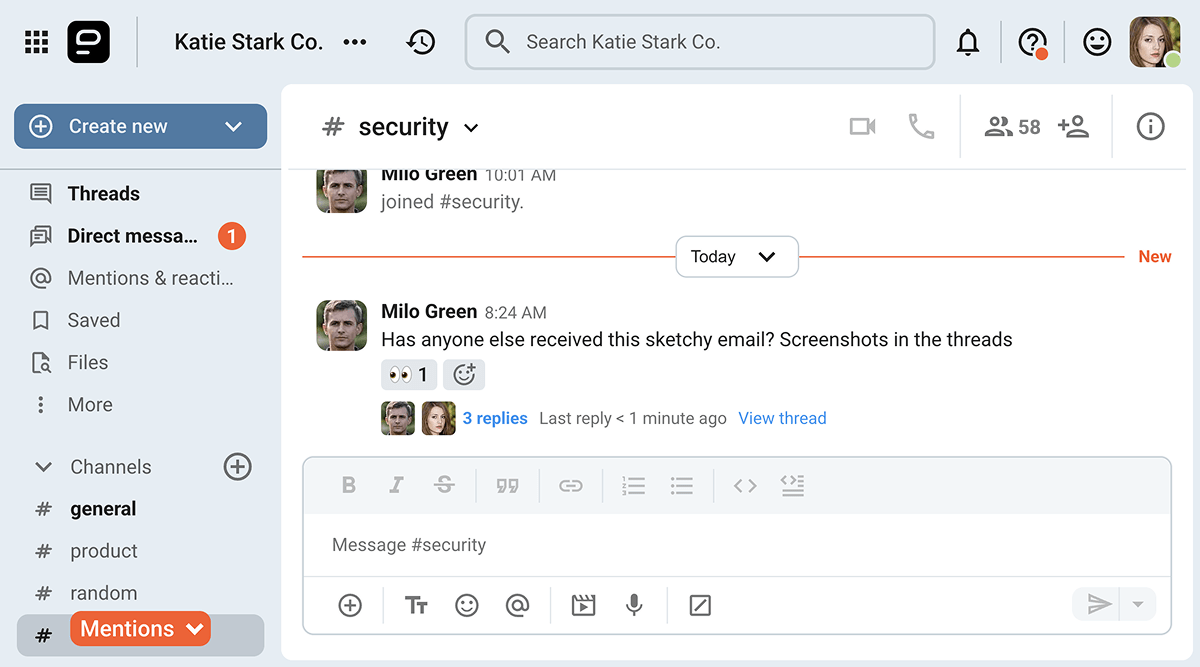
If writing doesn’t suffice, you can also inject nuance and personality into your workplace communication with voice and video messages.
In the words of Eric Kingsley, an employment lawyer, remote workers should practice effective communication even at the risk of over-explaining themselves:

“The best team members are the ones that over-communicate to avoid possible miscommunications or interruptions.”
In the same vein, remote employees should get into the habit of actively listening and asking better follow-up questions to avoid misunderstanding other people’s messages.
💡 PUMBLE PRO TIP
The best thing you can do to improve your asynchronous communication skills is to become a more direct communicator. Read this article to find out how:
Skill #2: Time management and deep work
When transitioning from an in-office environment to remote work, many people find it difficult to remain productive.
As Eric Kingsley pointed out, working without supervision requires a good amount of self-discipline:

“Without the provided structure of a physical office, it becomes the worker’s responsibility to set up an effective work space as well as consistently meet deadlines.”
Yet, even after taking the time to limit external distractions in their home office, many remote workers still struggle to focus due to the constant influx of notifications they might receive across platforms and devices.
After all, when we go remote, all the things that used to distract us in the office still exist. Chatty coworkers and overbearing supervisors are still going to want to talk to you 20 times a day, which has a way of preventing people from engaging in deep work.
However, using a simple communication tool makes all that chatter much easier to control. For example, Pumble lets users avoid notification fatigue by offering different ways for them to control their notifications.
They can:
- Mute overly active Pumble channels, threads, or conversations (that should take care of those chatty coworkers),
- Set a notification schedule to make sure you’re not getting any notifications after hours or during the weekend, and
- Pause notifications during the day to engage in focused work.
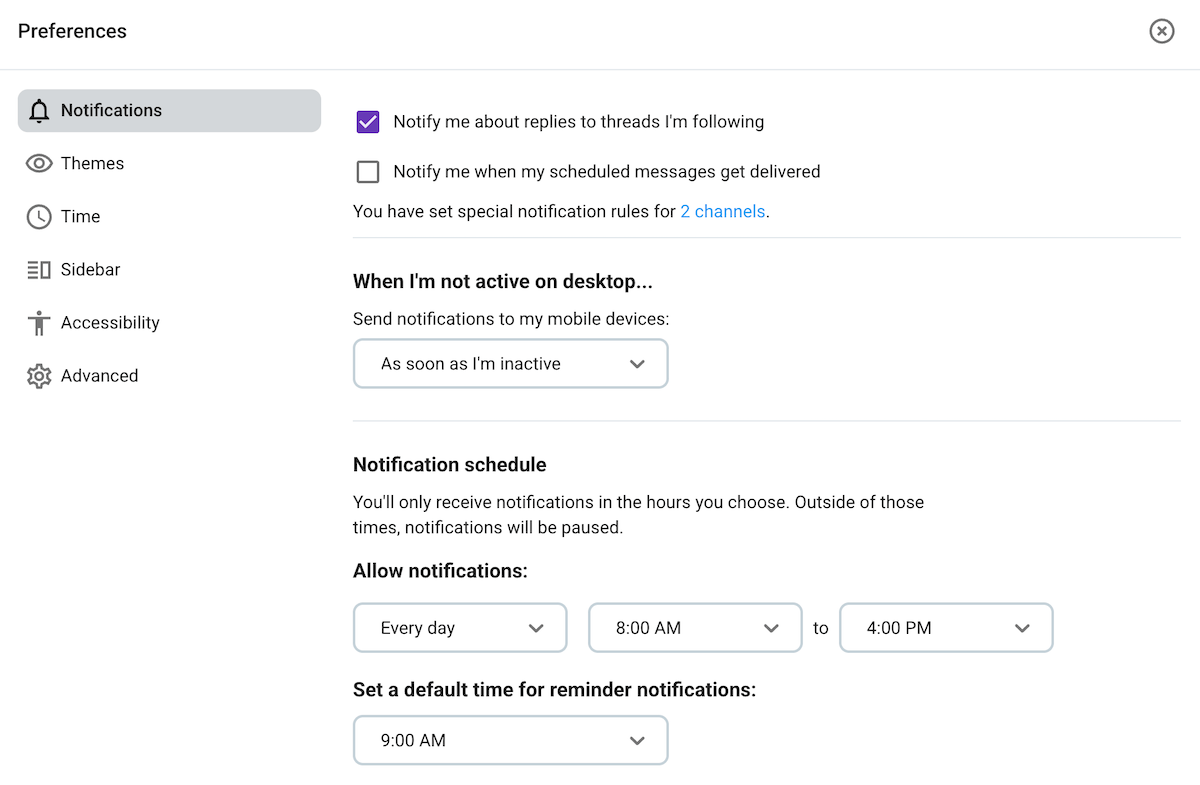
Control your notifications with Pumble
On top of that, Pumble also lets users set a custom status to deter would-be distractions and let their coworkers know they mean business.
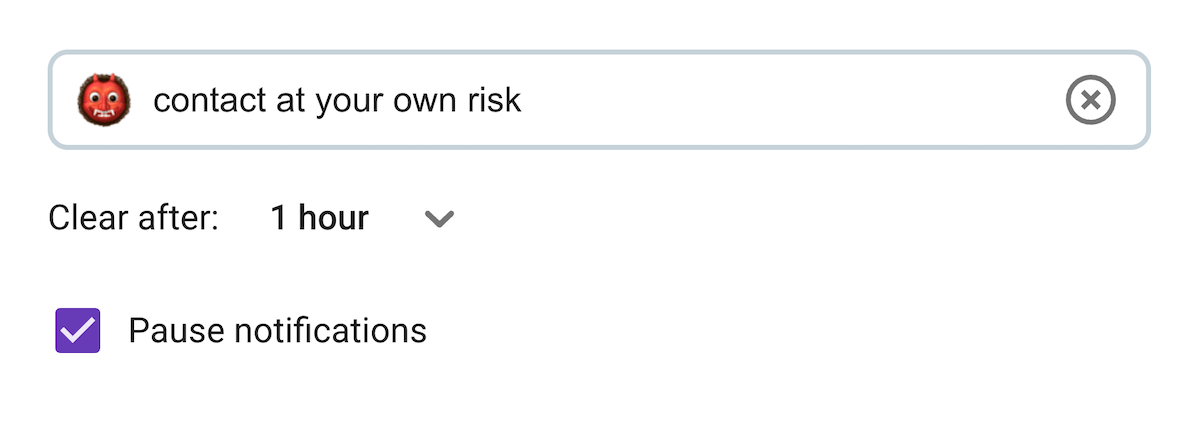
But, if self-discipline doesn’t get the job done, you could always bring in the big guns — a set of solid time management and productivity apps.
Pumble’s sister apps, the time tracker, Clockify, and the task management app, Plaky, can help you manage your time and your team better — even when you’re not in the same room.
Skill #3: Collaboration and knowledge sharing
Even though it’s important to make space for independent work, remote employees also need to keep their collaboration skills sharp.
Unfortunately, using the wrong remote collaboration tools can seriously hinder any efforts you make to build trust and establish the systems you’ll need for virtual teamwork and collaboration.
It only takes a few wrong turns, or even just a couple of weeks of neglect, for teams to form knowledge silos that can be extremely difficult to root out.
However, Pumble has systems in place to prevent that, allowing you to create a completely searchable knowledge base your team can rely on.
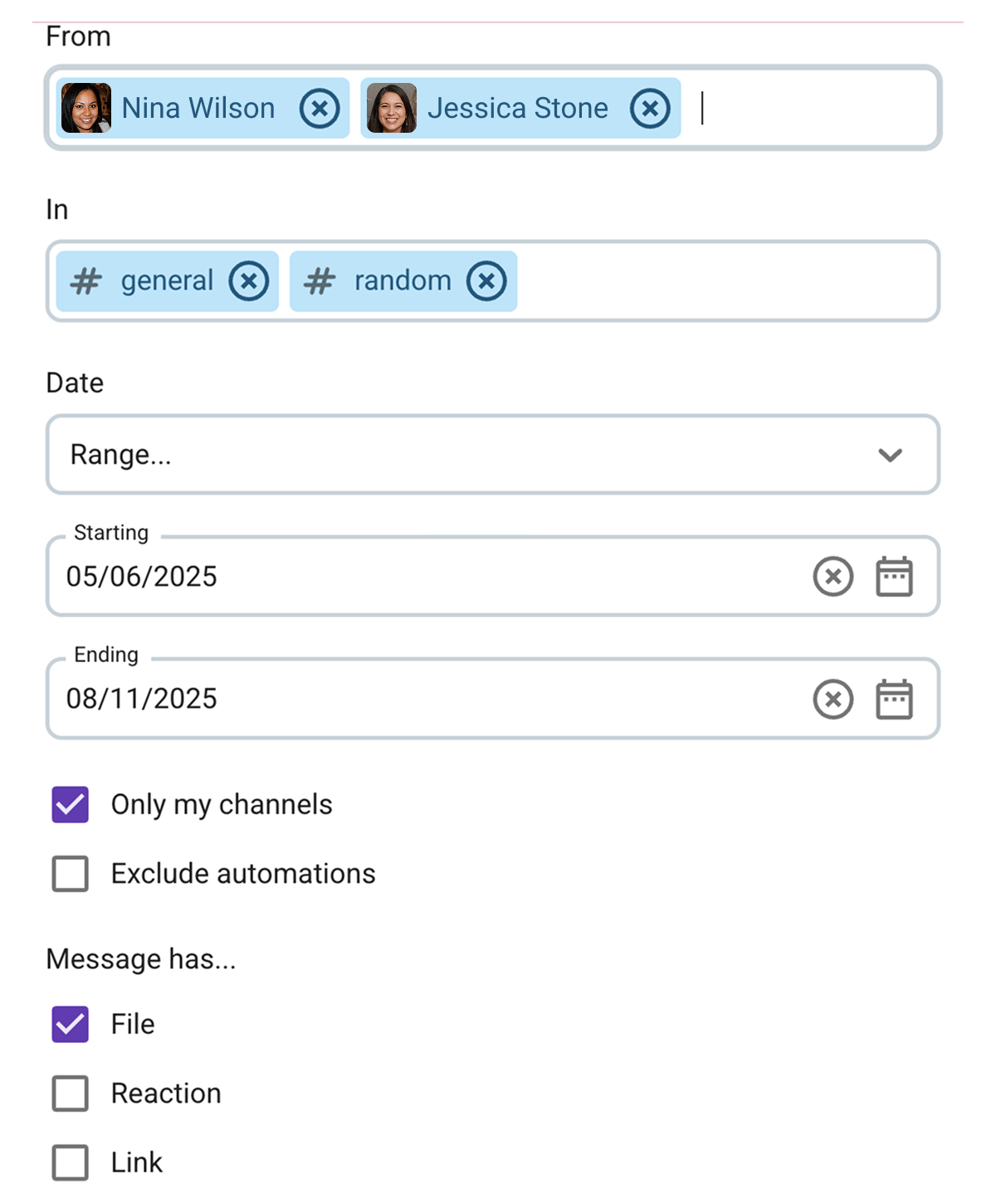
In addition to being able to search through the unlimited message history, you can also look for specific files, links, and pinned posts in the side panel of the Pumble channels and direct conversations you’re a part of.
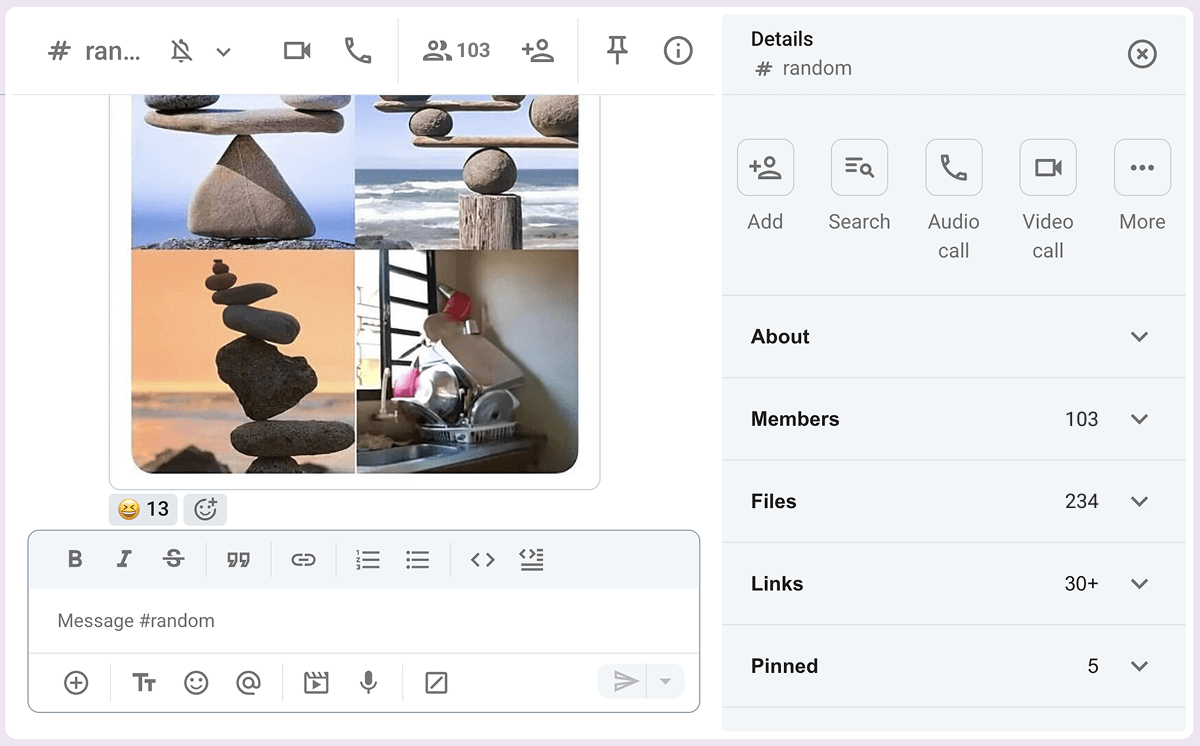
Being able to access all the information available in the channels they’ve been granted access to allows remote workers to get up to speed independently.
But, of course, knowledge sharing and collaboration isn’t just about sending files back and forth. It’s also about being able to link up and brainstorm with your team.
Luckily, Pumble’s robust video conferencing features let you start virtual meetings effortlessly. You can even invite external guests who don’t have an account via meeting links and keep these conversations on the record by recording them.
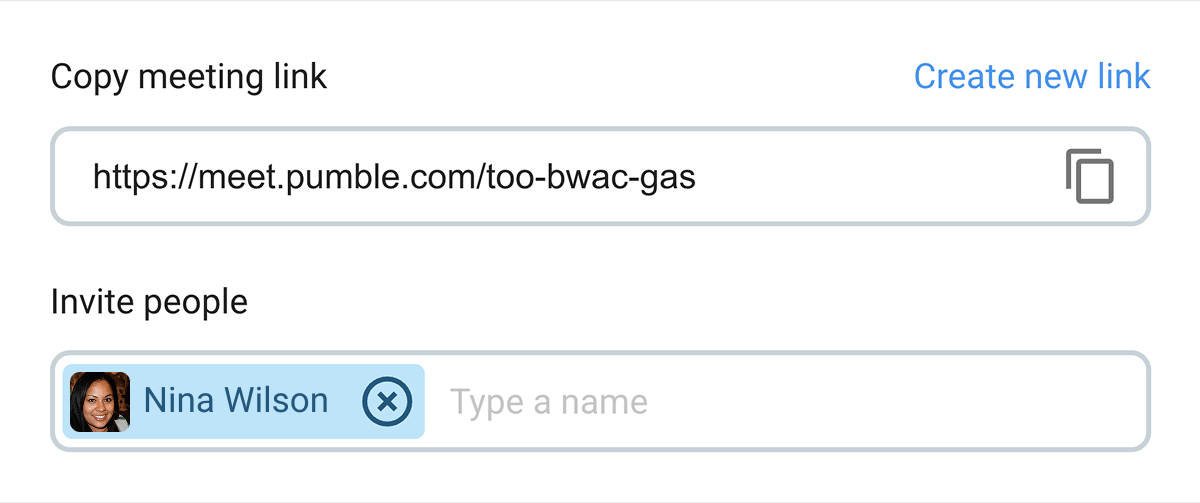
💡 PUMBLE PRO TIP
Make sure you don’t overwhelm your employees in your quest to make sure they have all the information they need — and more. To see why, check out this article:
Skill #4: Digital literacy
As a remote worker, you’ll spend most of your time working at a computer — which is why choosing the right remote collaboration tools is crucial.
Since you won’t have an in-house tech guy at your beck and call, you’ll benefit from learning a thing or two about the way your company-issued equipment works.
Most organizations nowadays offer some kind of tech onboarding, where they take you through the tools you’ll be using to work.
Of course, this process is much smoother if the employees are told to use a simple collaboration tool like Pumble, rather than a more bloated app with a complicated interface.
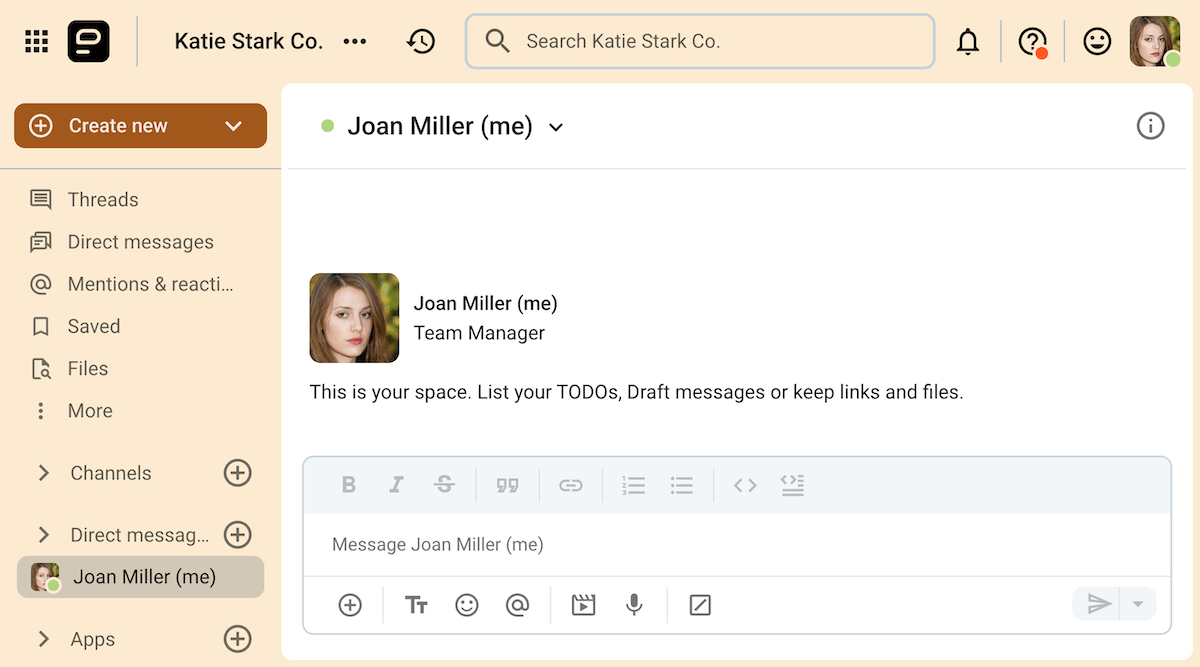
Even if your company doesn’t offer tech onboarding, you can always improve your digital literacy by pursuing a tech education on your own time.
To do so, you can:
- Read tech and industry news articles online,
- Follow users on professional social media platforms who post about those kinds of topics, or even
- Start a channel on Pumble where you and your coworkers can keep each other updated on the latest tech developments.
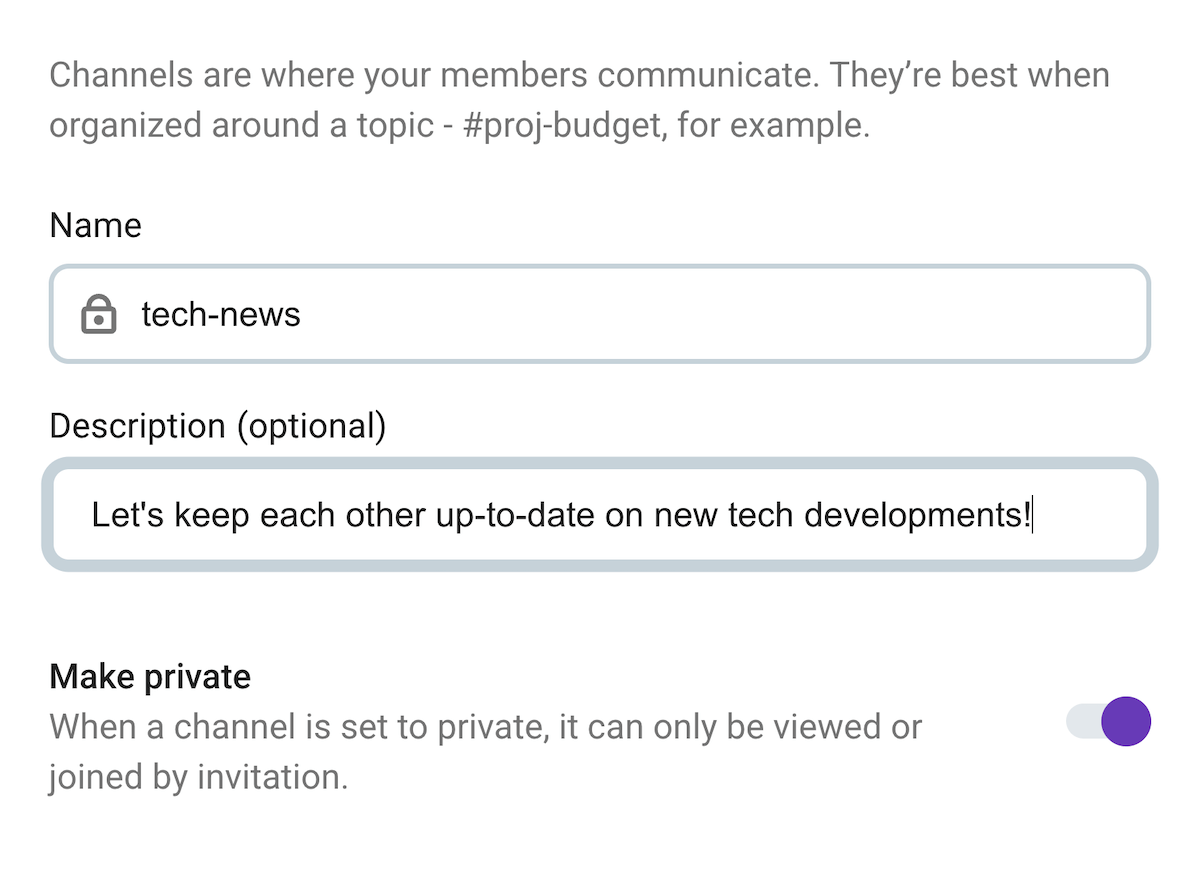
Skill #5: Flexibility and problem solving
Unfortunately, remote workers don’t always have the luxury of clear instructions, as PR & Communications Strategist and the founder of a media and consultation company, Mary Sahagun, told us:

“You won’t have someone next to you to quickly clarify. So, being able to read between the lines, make smart assumptions, and take action anyway? That’s huge.
For me, it’s less about ‘being independent’ and more about staying calm when things are vague. People who can turn a vague message into progress without spiraling or stalling are the ones who keep everything running.”
This thought was echoed by Jim Coughlin, the founder of a company that helps organizations build remote-first processes, who advises remote workers to become better learners, in general:

“That doesn’t necessarily even mean a fast learner (although that’s nice too), but being comfortable finding resources and making a good effort to try things out before asking for help.”
In other words, problem-solving skills and flexibility are essential skills for remote work.
So, how do you demonstrate and build these skills as a remote worker?
Well, you can try to:
- Embrace changes in business processes as they occur,
- Analyze industry changes that may raise issues for your company and discuss them with your coworkers in relevant channels,
- Ask your coworkers and work mentors for their thoughts when you hit a wall, and
- Come up with creative solutions to problems the team is having (and share them, whether by raising your hand in a meeting or by texting your suggestions).

Hop on a video call to brainstorm with your team on Pumble
Skill #6: Personal branding and networking
Mastering communication, collaboration, and problem solving is bound to increase your visibility as a remote employee.
If you’re kind and helpful on top of that, your team will appreciate you even more, according to the founder of a global branding and digital marketing firm, Paige Arnof-Fenn:

“While soft skills like charisma and confidence help you rise in the office environment, when it comes to remote/hybrid work, groups value helpfulness and reliability over bluster and charm. Many technical skills can be learned with training. Cultural fit and attitude matter more now.”
However, if you really want to cash in on that benefit and eventually move up the corporate ladder, you should put some real effort into building your personal brand and professional network.
To do that, you should start by letting your personality show in front of your coworkers, as Jim Coughlin advises:

“You have to be able to let your personality show in your writing because on a remote team, that’s going to be a huge part of how people get to know you.”
Leaving space for those moments of human connection might shield you and your team from one of the biggest pitfalls of remote work — loneliness.
According to one survey from Culture Wizard, as many as 71% of survey participants found it difficult to build relationships on virtual teams.
So, don’t be afraid to be the first one to reach out and get the conversation going. You can use small talk as a jumping off point for building a more connected remote team overall.
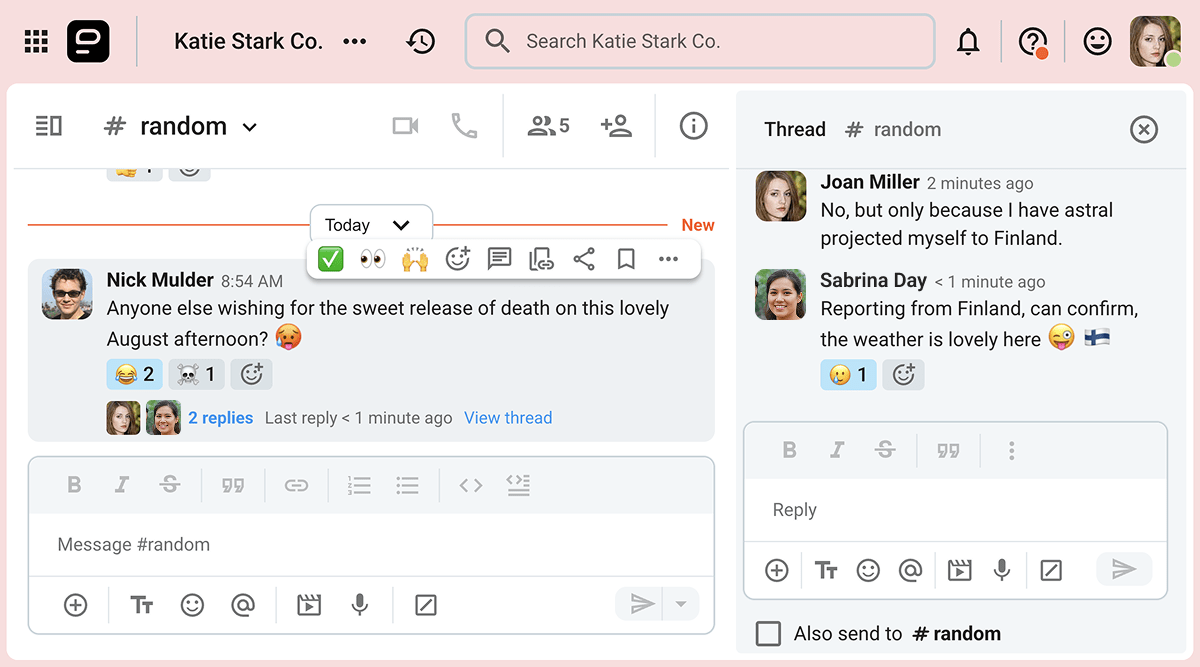
Build connections with your coworkers on Pumble
💡 PUMBLE PRO TIP
As a remote worker, networking may be the only way to fight against your employer’s proximity bias. To learn more about that and other biases you might be up against, check out this post:
Skill #7: Work-life balance
While we’re on the subject of the challenges of remote work, we should note that many remote employees also have difficulties dealing with work-related stress and disconnecting after work.
Now, some of the solutions we’ve already proposed should also help with this issue. Namely, if your stress and difficulty disconnecting from work is caused by notification fatigue, adjusting your notification schedule should help you feel more at ease.
However, there are other ways to maintain your work-life boundaries, such as:
- Taking regular breaks while working and making use of your PTO,
- Communicating your boundaries with your supervisor or team members (and saying “No” to additional tasks when you have enough on your plate), and
- Prioritizing your hobbies and interests after work (especially physical exercise, if your job is sedentary).
If you’re the manager of a remote team, you may have to encourage your employees to take their wellbeing seriously, as shown in the exchange below.
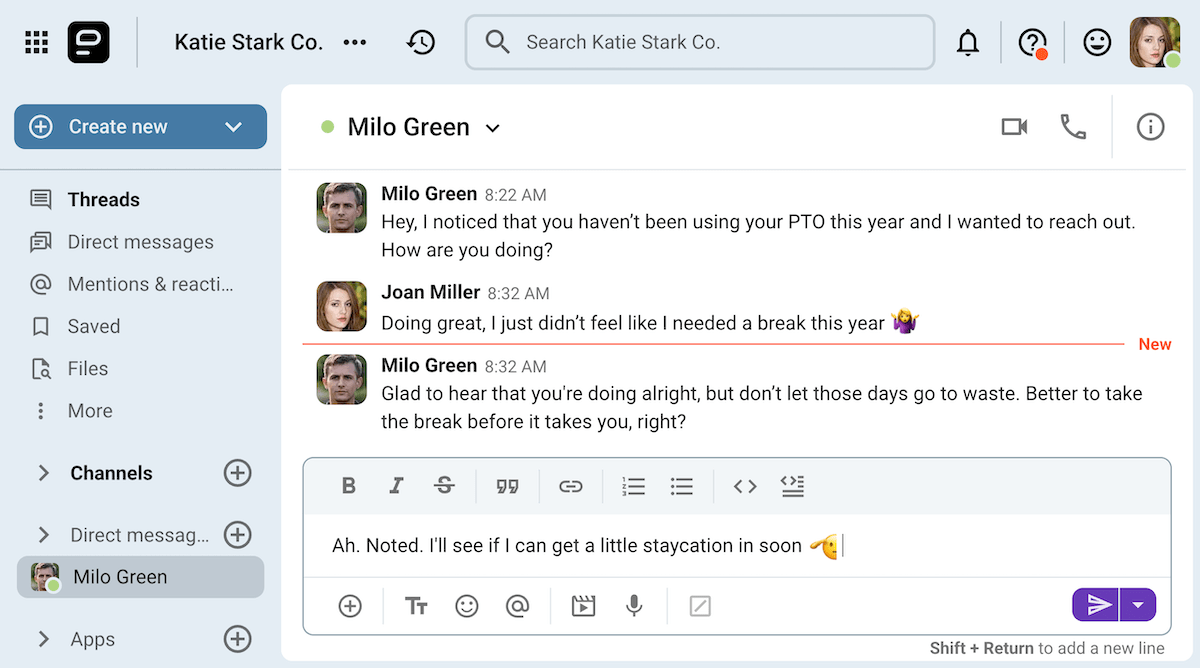
💡 PUMBLE PRO TIP
Reminding your employees to take their PTO is a good start, but there are more ways to create a great employee experience while improving remote team productivity. Learn more here:
Skill #8: People management
If you’re a remote worker who has their heart set on becoming a remote manager in the near future, you should also work on your people management skills.
Of course, managing remote employees comes with a unique set of challenges. When you can’t see your team in front of you, it can be tempting to turn to the dark side and become a micromanager.
But, why go that route when there are so many better leadership styles to choose from?
After all, people management is all about using emotional intelligence to:
- Resolve conflicts among team members,
- Deliver constructive feedback, and even
- Dole out praise.
And, as always, practicing these remote work skills can be achieved through Pumble, which lets you celebrate successes publicly and keep the disagreements on more private channels.
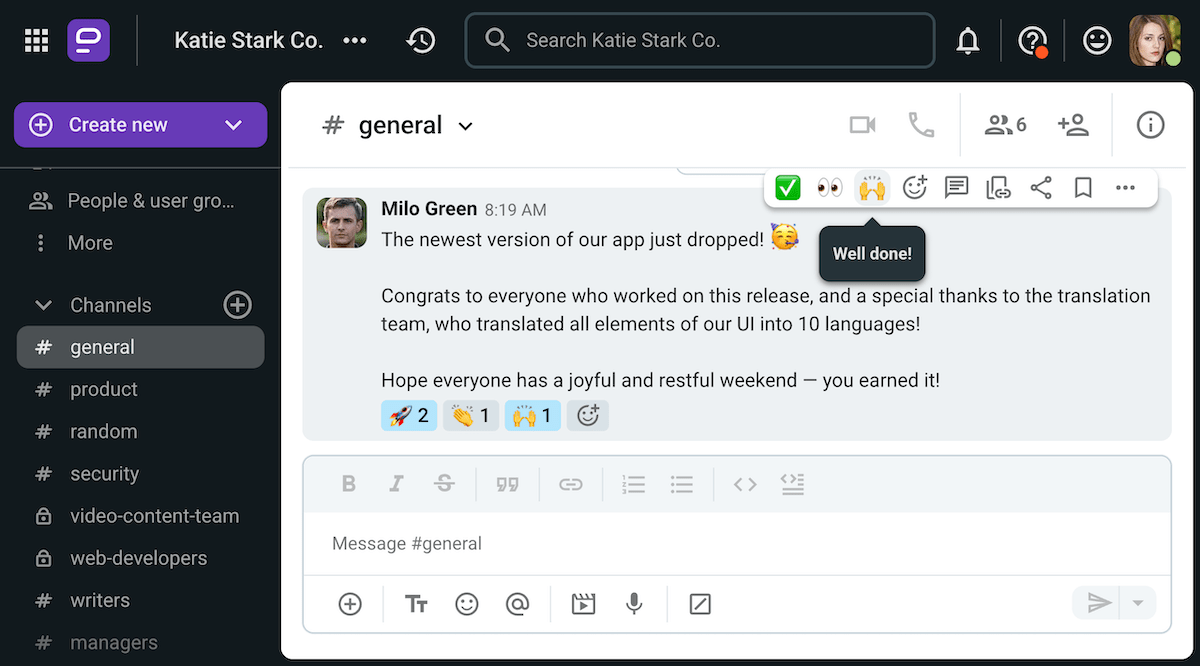
💡 PUMBLE PRO TIP
While asynchronous communication skills are an important asset for any remote worker, leaders tend to have a different way of communicating with their employees. To learn more about that type of communication, check out this article:
Practice your leadership communication skills on Pumble
Why simple communication tools are better than complex platforms for developing remote work skills
If you’ve been a remote worker for a while, you may have noticed that some of your favorite remote communication tools have only gotten more unreliable as time goes on.
That’s because many of the biggest tech companies out there have been overloading their apps with unnecessary features, heralding the era of feature-bloat.
But, weighing an app down with unnecessary features doesn’t only make it run slower. Rather, adding all those extra features nobody asked for is usually done to justify price gouging.
Conversely, a simple collaboration tool like Pumble has all the features you need to make remote work simpler with none of the bloat.
It offers plenty of customization and personalization options, so everyone on your team can adjust it to fit their needs and preferences.
Though the app is fully functional on the free plan, moving to a paid plan can help you unlock some great features at a reasonable price.
All this to say: you don’t have to struggle to use overly complicated and expensive apps to communicate with your coworkers.
In this case, as in many others — it’s best to keep it simple.
Develop your remote work skills with Pumble
If you want to know how to succeed in a remote job, you should start by considering whether you have the essential skills for remote work, in the first place.
But, if that moment of introspection leads you to the conclusion that you may not be made for remote work, after all — fear not.
Ultimately, choosing the right remote communication tools should do half your work for you.
After adjusting your collaboration tools to suit your needs, you shouldn’t have to consciously think of them again.
That’s the kind of certainty Pumble can bring to your organization.
Its minimalist interface and simple features were intentionally designed to:
- Reduce cognitive load,
- Eliminate notification fatigue, and
- Allow you to engage in focused work independently or with a team.
If that sounds like the kind of peace you and your team could use, don’t hesitate.
Develop your remote work skills while you work.





